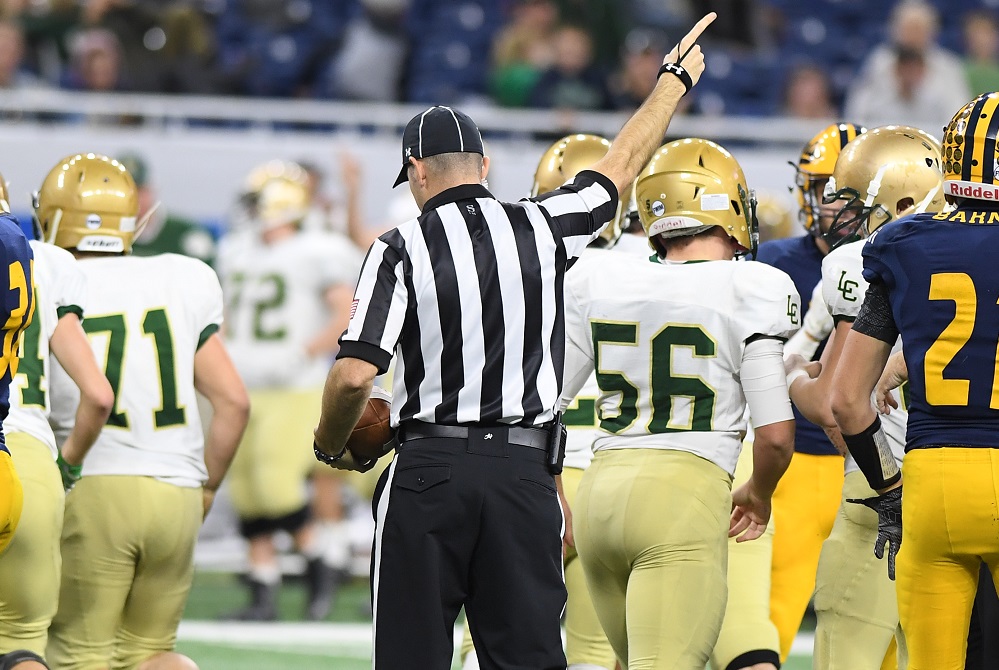
#TBT: Watervliet, Coloma Make it 100
August 24, 2017
By Geoff Kimmerly
Second Half editor
On a cloudy August night in 2009, with overcast skies similar to what many across Michigan are seeing this afternoon, Coloma and Watervliet played the 100th game of what continues to be one of the longest series in MHSAA football history.
Coloma won that 2009 season opener 21-12, at the time its 10th straight victory over the rival Panthers. But Watervliet ended the streak the following fall, winning 34-6 in 2010, and has won all four meetings since – the teams didn’t play each other from 2012-14.
Watervliet leads the series 66-34-6 and won last year’s game 66-26. Their matchup ranks 13th in MHSAA history for most games played between two teams. Watervliet hosts Coloma in Week 9 this season, Oct. 20.
PHOTO: Watervliet helmet signs line one end of the field prior to the team’s game against Coloma in 2009. (Photo by John Johnson.)

Be the Referee: Pass Interference
By
Geoff Kimmerly
MHSAA.com senior editor
September 2, 2021
This week, MHSAA officials coordinator Sam Davis explains the differences in high school pass interference rules from those at the college and pro levels.
Be The Referee is a series of short messages designed to help educate people on the rules of different sports, to help them better understand the art of officiating, and to recruit officials.
Below is this week's segment – Pass Interference – Listen
One of the big differences between high school football and the college or pro game is how pass interference is called.
In high school, there is no such thing as an “uncatchable” pass. If there is illegal contact by the defender while the ball is in the air, that’s pass interference, no matter where the pass ultimately ends up.
Also – in high school – a defender can “face guard” as long as no contact is made with the receiver. That is not pass interference, even if the defender does not look back for the ball.
Both of those interpretations differ from the college and pro game. Both (of those) levels have an uncatchable exception, and neither allows for face guarding.
Keep that in mind the next time you think you’ve spotted pass interference at the high school level.
Previous editions
Aug. 26: Protocols and Mechanics – Listen

